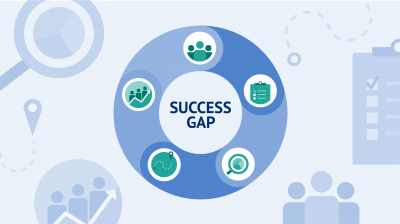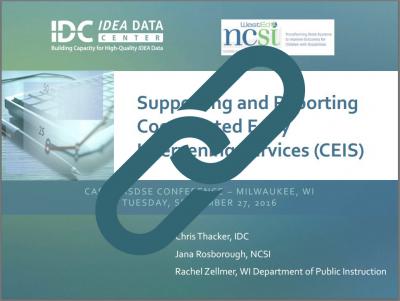Site Search
Results 519 - 525 of 608
-
News Type: Announcements, Blog Post
Summary of Changes to the New FFY 2020-2025 State Performance Plan/Annual Performance ReportIn early October 2020, the Office of Special Education Programs (OSEP) released the new State Performance Plan and Annual Performance Report (SPP/APR) for Part B of the Individuals with Disabilities Education Act (IDEA). States across the country...
Format: Podcasts
Success Comes Naturally: Arkansas and DMS 2.0Episode 18
Release Date: February 9, 2023
Guests: Matt Sewell, Director of Special Programs; Yvonne Greene, Administrator of Monitoring and Program Effectiveness; and Jody Fields, Part B Data Manager, Arkansas Department of Education
Dateline Arkansas, the Natural State: As a member of Cohort 1, Arkansas is among the first in the nation to complete the first two phases of OSEP’s Differentiated Monitoring and Support (DMS) 2.0. Naturally, Arkansas education officials have stories to tell and insights to share, and naturally, they sat down with host Amy Bitterman to discuss the crucial steps of their DMS 2.0 experience. This included pulling together an effective team, updating state procedures (and online information), and working with technical assistance (TA) experts to ensure the most successful possible outcomes. It’s an insider’s look you’ll only find on this episode of A Date with Data, naturally enough.
Format: Guides and Briefs
Success Gaps Rubric: Addressing Equity, Inclusion, and OpportunityThis rubric allows a team of users from a district or school to systematically examine the root causes of success gaps among groups of students by focusing on equity, inclusion, and opportunity. The recently updated rubric now includes considerations for children as young as preschool age. A complementary white paper provided the research-based background that supported development of the rubric.
Format: Toolkits
Success Gaps Toolkit: Addressing Equity, Inclusion, and OpportunityThe Success Gaps Toolkit presents a process for using data and the Success Gap Rubric to identify root causes of gaps between groups of children in districts or schools. These success gaps occur when the education system is not meeting the needs of all groups of children and outcomes for some groups are different than outcomes for most groups. The toolkit, with its process and materials, provides a manageable and defined way for districts or schools to identify success gaps that are present and their root causes and then make a plan for addressing the gaps. The success gaps may be the graduation rate of students who are English learners compared to the rate of all other children, the out-of-school suspension rate of children who are Black compared to the rate of all other children, the identification of children who are Hispanic as children with specific learning disabilities compared to the identification of all other children, and other gaps.
Format: Podcasts
Support Group: IDC TA Providers Talk Differentiated Monitoring and Support (DMS) 2.0Episode 19
Release Date: February 23, 2023
Guests: Mary Watson and Amber Stohr, IDC
Support is a critical component of success. In practice, support means having a group of trusted partners who are there when you need them and who provide help and insight when asked. On this very special episode of A Date with Data, host Amy Bitterman sits down with her IDC colleagues Mary Watson and Amber Stohr, who share their experiences as TA providers supporting Cohort 1 states through DMS 2.0. Join us as Mary and Amber share tips, perspectives, and a thought or two about how IDC supports states, helping prepare for onsite or virtual visits. This is one support group you’ll definitely want to join.
Format: Presentations
Supporting and Reporting CEISPanel presenters from IDC, NCSI, and the Wisconsin Department of Public Instruction discussed CEIS including required and voluntary implementation as well as activities that may be provided using these funds. Presenters also reviewed IDC's Navigating CEIS White Paper and FAQ documents and discussed data and fiscal requirements for LEAs implementing this program. Additionally, Rachel Zellmer described how Wisconsin administers CEIS and works with its LEAs to ensure appropriate services are provided that maximize impact while addressing, if appropriate, why the LEA was identified.
Format: Presentations
Supporting Dropout/Graduation As a Part B SiMRThe presentation provides strategies to support the Coherent Improvement Strategies in states' Phase I Part B SSIPs and highlights graduation/transition SIMRs.






